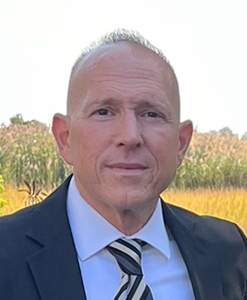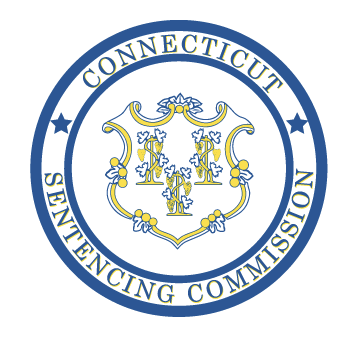
Rich Sparaco has been appointed Interim Executive Director of the Connecticut Sentencing Commission, filling the role vacated by Alex Tsarkov, who was named to the state’s Board of Pardons and Paroles in May 2025. The Commission’s Steering Committee unanimously recommended Sparaco for the interim position during its June 26th meeting. He will serve while a national search is underway for a permanent Executive Director, ensuring continuity in the Commission’s research-driven policy work during this transitional period.
“This appointment gives me the opportunity to continue to work in the field that I have been a part of for over 30 years in Connecticut,” said Sparaco. “It encompasses many of the areas I’ve been involved in and some new ones, especially the pretrial arena. While it’s not easy to just step into the ongoing work of the Commission, I’m fortunate to continue to build on what Alex started and given my years in the Connecticut criminal justice system, I know many of the players.”
Steering the Commission Through Transition
The Executive Director plays a central role in shaping the Commission’s research agenda, coordinating with partner agencies, facilitating communication among members and staff, and serving as a public-facing leader. With Tsarkov’s departure, Sparaco’s interim leadership is key to maintaining momentum on critical initiatives.
“There are a number of ongoing projects and studies,” he said. “We’ll be determining priorities and how best to track these efforts for the upcoming legislative session. We’ll also revisit the mission and vision of the Commission to refine what members want to accomplish.”
The Sentencing Commission is supported by the Institute for Municipal and Regional Policy (IMRP) at the University of Connecticut, which provides its professional staff and administrative infrastructure.
“Taking on this role has given me a new appreciation for how IMRP operates,” Sparaco noted. “Most people don’t realize how interconnected everything is. I’ve worked with Andrew (Clark, IMRP Director) and Alex over the years. IMRP has a strong presence, does incredible work, and continues to evolve.”
A Long History of Service
Sparaco began his career in Connecticut’s criminal justice system in 1992, after earning his master’s in criminal justice from Northeastern University. His extensive experience includes nearly a decade as Executive Director of the Board of Pardons and Paroles. He was part of the initial task force that led to the creation of the Sentencing Commission in 2010.
After retiring from the Parole Board, Sparaco was bought back in a part time capacity to continue work with the Commission in fall 2023. He worked on medical and compassionate parole research as well as the P.A. 15-84 study, which explores the experiences of individuals who were paroled for offenses they committed under the age of 18.
A resident of Guilford, Sparaco also brings national consulting experience, having advised parole boards in a dozen states including Michigan, Ohio, Vermont, and California.
“I retired but I wasn’t done. I wasn’t ready to completely leave the Connecticut system.”
Continuing the Work Ahead
Steering Committee members cited Sparaco’s familiarity with internal operations and policy framework as assets to the Commission’s continued efforts in research, governance, and policy review. Current initiatives include:
- A statewide pretrial justice study, combining quantitative analysis and comparative policy review, with results expected by the end of summer.
- Continuing examination of sentencing disparities, mental health policy, and reforms related to hate crimes and human trafficking statues.
- The Steering Committee’s summer work on proposed bylaw amendments, designed to clarify Commission structure, staff oversight, and the Executive Director’s role during and after the transition.
“There is still more to do,” Sparaco summarizes. “I want to be part of the continuation of work to achieve fairness and equity in Connecticut’s criminal justice system. That includes improving risk assessment and decision-making about alternatives to incarceration.”
The full Commission meets quarterly. Its next meeting is scheduled for September 11th at 2:00 pm. Those interested in the link to attend can reach out to Tommy Dowd, CTSC program administrator at thomas.j.dowd@uconn.edu.

About the Connecticut Sentencing Commission The Commission, established in 2011, is an independent state agency that reviews sentencing laws and practices and offers data-driven policy recommendations to the Governor, legislature, and criminal justice agencies. It partners with academic institutions such as the University of Connecticut, Yale, and Quinnipiac for research, and its administrative support is provided by the Institute for Municipal & Regional Policy. Learn more at: https://ctsentencingcommission.org/